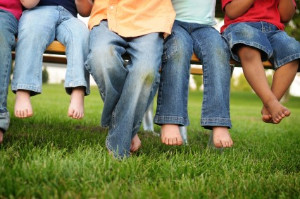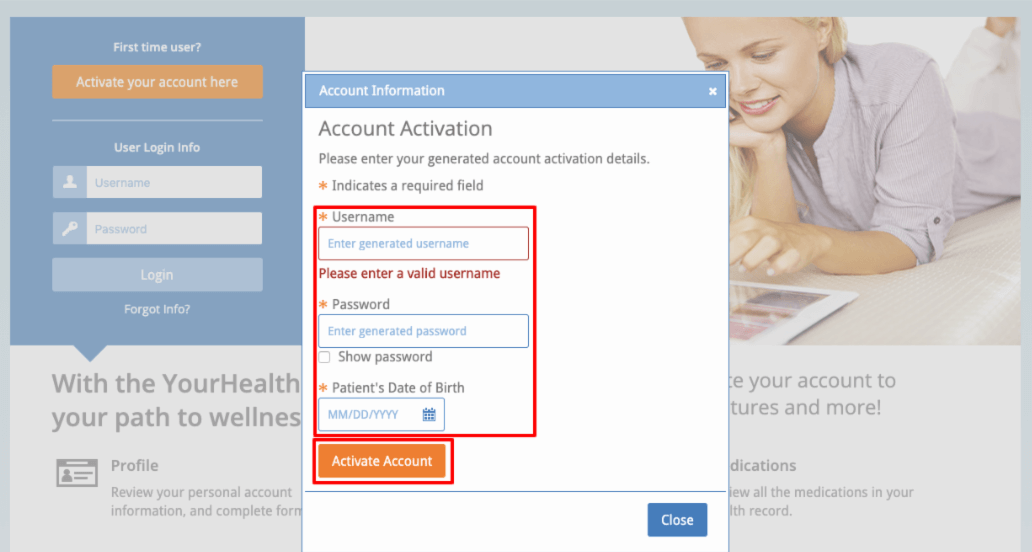Connect With Us
Blog
Items filtered by date: March 2020
How Do Ingrown Toenails Develop?
 Patients who have experienced an ingrown toenail often notice that their toe may become red and swollen. This condition occurs as a result of the outer edges of the toenail growing into the surrounding skin. Ingrown toenails can produce severe pain and discomfort, and may ooze with a discharge if they become infected. This condition can develop for a variety of reasons including wearing shoes that do not fit correctly, trimming the toenails improperly, or it may develop from a previous toe injury. Many patients have found mild relief when the affected toe is soaked in warm water, as this may help the skin to soften. If you are afflicted with this ailment, it’s suggested that you consult with a podiatrist who can properly treat this condition.
Patients who have experienced an ingrown toenail often notice that their toe may become red and swollen. This condition occurs as a result of the outer edges of the toenail growing into the surrounding skin. Ingrown toenails can produce severe pain and discomfort, and may ooze with a discharge if they become infected. This condition can develop for a variety of reasons including wearing shoes that do not fit correctly, trimming the toenails improperly, or it may develop from a previous toe injury. Many patients have found mild relief when the affected toe is soaked in warm water, as this may help the skin to soften. If you are afflicted with this ailment, it’s suggested that you consult with a podiatrist who can properly treat this condition.
Ingrown toenails may initially present themselves as a minor discomfort, but they may progress into an infection in the skin without proper treatment. For more information about ingrown toenails, contact Imaze Marian Davis, DPM of Marian Davis, DPM, PA. Our doctors can provide the care you need to keep you pain-free and on your feet.
Ingrown Toenails
Ingrown toenails are caused when the corner or side of a toenail grows into the soft flesh surrounding it. They often result in redness, swelling, pain, and in some cases, infection. This condition typically affects the big toe and may recur if it is not treated properly.
Causes
- Improper toenail trimming
- Genetics
- Improper shoe fitting
- Injury from pedicures or nail picking
- Abnormal gait
- Poor hygiene
You are more likely to develop an ingrown toenail if you are obese, have diabetes, arthritis, or have any fungal infection in your nails. Additionally, people who have foot or toe deformities are at a higher risk of developing an ingrown toenail.
Symptoms
Some symptoms of ingrown toenails are redness, swelling, and pain. In rare cases, there may be a yellowish drainage coming from the nail.
Treatment
Ignoring an ingrown toenail can have serious complications. Infections of the nail border can progress to a deeper soft-tissue infection, which can then turn into a bone infection. You should always speak with your podiatrist if you suspect you have an ingrown toenail, especially if you have diabetes or poor circulation.
If you have any questions, please feel free to contact our office located in Miami, FL . We offer the newest diagnostic and treatment technologies for all your foot care needs.
What Changes to the Feet Does Pregnancy Bring?
 Women notice their bodies go through several changes during pregnancy. The feet are often affected, which may be a result of the additional weight the feet must support. A common foot condition that pregnancy often leads to is called flat feet. This ailment can cause general pain and discomfort, and may be diminished when the correct shoes are worn. Additionally, many pregnant women notice their feet become swollen, and it may help to elevate them as frequently as possible during the day. The painful skin condition that is known as cracked heels can be controlled by wearing shoes that have a closed back, and to refrain from standing for the majority of the day. If you would like additional information about how pregnancy affects the feet, please consult with a podiatrist.
Women notice their bodies go through several changes during pregnancy. The feet are often affected, which may be a result of the additional weight the feet must support. A common foot condition that pregnancy often leads to is called flat feet. This ailment can cause general pain and discomfort, and may be diminished when the correct shoes are worn. Additionally, many pregnant women notice their feet become swollen, and it may help to elevate them as frequently as possible during the day. The painful skin condition that is known as cracked heels can be controlled by wearing shoes that have a closed back, and to refrain from standing for the majority of the day. If you would like additional information about how pregnancy affects the feet, please consult with a podiatrist.
Pregnant women with swollen feet can be treated with a variety of different methods that are readily available. For more information about other cures for swollen feet during pregnancy, consult with Imaze Marian Davis, DPM from Marian Davis, DPM, PA. Our doctors will attend to all of your foot and ankle needs.
What Foot Problems Can Arise During Pregnancy?
One problem that can occur is overpronation, which occurs when the arch of the foot flattens and tends to roll inward. This can cause pain and discomfort in your heels while you’re walking or even just standing up, trying to support your baby.
Another problem is edema, or swelling in the extremities. This often affects the feet during pregnancy but tends to occur in the later stages.
How Can I Keep My Feet Healthy During Pregnancy?
- Wearing orthotics can provide extra support for the feet and help distribute weight evenly
- Minimize the amount of time spent walking barefoot
- Wear shoes with good arch support
- Wear shoes that allow for good circulation to the feet
- Elevate feet if you experience swelling
- Massage your feet
- Get regular, light exercise, such as walking, to promote blood circulation to the feet
If you have any questions please feel free to contact our office located in Miami, FL . We offer the newest diagnostic and treatment technologies for all your foot and ankle needs.
Children and Walking
 Children’s feet may become stronger when shoes are not worn while indoors. When children are barefoot, they start performing a grasping action with their toes, which can be beneficial in strengthening the entire foot. When walking is done outdoors, it is important to purchase shoes that fit correctly. It is important to measure your child’s feet approximately every three months to avoid purchasing footwear that may constrain their toes. Focusing on buying shoes that are lightweight and made of a breathable material may also be beneficial to the overall health of your child’s feet. Adequate room is necessary in the top of the shoe for the toes to move freely in. Additionally, proper foot care can consist of washing the feet daily, followed by drying them completely between the toes. When the toes are trimmed in a straight line, uncomfortable foot conditions that can include ingrown toenails may be prevented. If you would like additional information about how to care for your child’s feet, please consult with a podiatrist.
Children’s feet may become stronger when shoes are not worn while indoors. When children are barefoot, they start performing a grasping action with their toes, which can be beneficial in strengthening the entire foot. When walking is done outdoors, it is important to purchase shoes that fit correctly. It is important to measure your child’s feet approximately every three months to avoid purchasing footwear that may constrain their toes. Focusing on buying shoes that are lightweight and made of a breathable material may also be beneficial to the overall health of your child’s feet. Adequate room is necessary in the top of the shoe for the toes to move freely in. Additionally, proper foot care can consist of washing the feet daily, followed by drying them completely between the toes. When the toes are trimmed in a straight line, uncomfortable foot conditions that can include ingrown toenails may be prevented. If you would like additional information about how to care for your child’s feet, please consult with a podiatrist.
Making sure that your children maintain good foot health is very important as they grow. If you have any questions, contact Imaze Marian Davis, DPM of Marian Davis, DPM, PA. Our doctors can provide the care you need to keep you pain-free and on your feet.
Keeping Children's Feet Healthy
Having healthy feet during childhood can help prevent medical problems later in life, namely in the back and legs. As children grow, their feet require different types of care. Here are some things to consider...
Although babies do not walk yet, it is still very important to take care of their feet.
Avoid putting tight shoes or socks on his or her feet.
Allow the baby to stretch and kick his or her feet to feel comfortable.
As a toddler, kids are now on the move and begin to develop differently. At this age, toddlers are getting a feel for walking, so don’t be alarmed if your toddler is unsteady or ‘walks funny’.
As your child gets older, it is important to teach them how to take care of their feet.
Show them proper hygiene to prevent infections such as fungus.
Be watchful for any pain or injury.
Have all injuries checked by a doctor as soon as possible.
Comfortable, protective shoes should always be worn, especially at play.
If you have any questions please feel free to contact our office located in Miami, FL . We offer the newest diagnostic and treatment technologies for all your foot and ankle needs.
Falling May Occur Among Elderly Patients
 Many elderly people experience health issues as the aging process occurs. Typically, this can affect their balance. That is why learning ways to prevent falling may possibly help to reduce the risk of painful injuries. There are many different reasons why some patients may be at risk of falling. These can include improperly using a cane or walker, or having poor hearing or eyesight. It’s important to remove any tripping hazards in the living area of the home to help prevent falling. Other means of prevention may consist of discarding worn rugs, and taping down any existing electrical wires that may be on the floor. Additionally, it may be beneficial to install grab bars in the shower and toilet area for extra support. If you would like additional information about how to prevent falling, it is suggested that you consult with a podiatrist.
Many elderly people experience health issues as the aging process occurs. Typically, this can affect their balance. That is why learning ways to prevent falling may possibly help to reduce the risk of painful injuries. There are many different reasons why some patients may be at risk of falling. These can include improperly using a cane or walker, or having poor hearing or eyesight. It’s important to remove any tripping hazards in the living area of the home to help prevent falling. Other means of prevention may consist of discarding worn rugs, and taping down any existing electrical wires that may be on the floor. Additionally, it may be beneficial to install grab bars in the shower and toilet area for extra support. If you would like additional information about how to prevent falling, it is suggested that you consult with a podiatrist.
Preventing falls among the elderly is very important. If you are older and have fallen or fear that you are prone to falling, consult with Imaze Marian Davis, DPM from Marian Davis, DPM, PA. Our doctors will assess your condition and provide you with quality advice and care.
Every 11 seconds, an elderly American is being treated in an emergency room for a fall related injury. Falls are the leading cause of head and hip injuries for those 65 and older. Due to decreases in strength, balance, senses, and lack of awareness, elderly persons are very susceptible to falling. Thankfully, there are a number of things older persons can do to prevent falls.
How to Prevent Falls
Some effective methods that older persons can do to prevent falls include:
- Enrolling in strength and balance exercise program to increase balance and strength
- Periodically having your sight and hearing checked
- Discuss any medications you have with a doctor to see if it increases the risk of falling
- Clearing the house of falling hazards and installing devices like grab bars and railings
- Utilizing a walker or cane
- Wearing shoes that provide good support and cushioning
- Talking to family members about falling and increasing awareness
Falling can be a traumatic and embarrassing experience for elderly persons; this can make them less willing to leave the house, and less willing to talk to someone about their fears of falling. Doing such things, however, will increase the likelihood of tripping or losing one’s balance. Knowing the causes of falling and how to prevent them is the best way to mitigate the risk of serious injury.
If you have any questions, please feel free to contact our office located in Miami, FL . We offer the newest diagnostic and treatment technologies for all your foot care needs.


